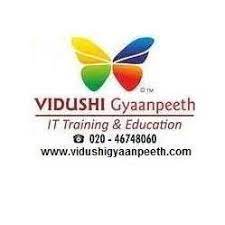SQL/PL SQL free videos and free material uploaded by Vidushi GyaanPeeth staff .
Introduction to SQL & SQL*Plus
Review of Basic SQL and history of SQL:
History of SQL
Evolution of SQL
SQL constructs:
Select
Project
Join
Complex Boolean logic in SQL
ROWID restrictions
Using SQL*Plus
Creating basic reports
Altering SQL execution plans
Joining Oracle tables
Sort-merge joins
Nested Loop joins
Hash joins
STAR joins
Bitmap joins
Exercise – Change table join techniques & evaluate performance
Equi-join
Outer join
Advanced SQL operators
Between operator
IN and NOT In operators
Sub-queries
EXISTS clause
Using wildcards in queries (LIKE operator)
SQL Tuning
DML and SQL Tuning
Writing and optimizing INSERT statements
Writing and optimizing DELETE statements
Writing and optimizing UPDATE statements
Aggregation IN sql
Aggregation in SQL
Count(*)
Sum
Avg
Min and max
Using the group by clause
PL/SQL Section
Basics of PL/SQL
PL/SQL architecture
PL/SQL and SQL*Plus
PL/SQL Basics
Introduction to PL/SQL
PL/SQL as a 4th generation language
Compiling vs. Interpreting
Declare statement
Exercise: Write “hello” world PL/SQL program
Using PL/SQL Variables
PL/SQL Constants
PL/SQL Datatypes
Error messages – user errors and show errors
PL/SQL wrapper utility
Error checking – exception handling
Defining exceptions
Using the when others clause
Ensuring complete error checking
Passing error messages to calling routine
Cursors in PL/SQL
Cursor basics
Using a cursor for a multi-row SQL query
Dynamic SQL in PL/SQL
Introduction to the dbms_sql package
Creating a dynamic SQL statement
Entity/relation modeling
Types of data relationships
Data normalization
One-to-many relationships
One-to-many relationships
Many-to-many relationships
Recursive many-to-many relationships
Subqueries
Using IN, NOT IN, EXISTS and NOT EXISTS
Subqueries
Correlated subquery
Non-correlated subqueries
SQL access methods
Review of Basic joining methods
Merge join
Hash Join
Nested Loop join
Advanced SQL operators
Between operator
SQL Tuning and full-table scans
Basics of file I/O
Sequential reads vs. scattered reads
When full scans are best
RAM caching in the SGA
Automating table caching
Solid State Disks
Tracking full-scans over time with AWR
Exercise – Query v$sql
PL/SQL structures
Simple blocks
Control structures
PL/SQL records
Recognizing the Basic PL/SQL Block and Its Sections
Describing the Significance of Variables in PL/SQL
Distinguishing Between PL/SQL and Non-PL/SQL Variables
Declaring Variables and Constants
Executing a PL/SQL Block
Boolean logic in PL/SQL
Identifying the Uses and Types of Control Structures
Constructing an IF Statement
Constructing and Identifying Different Loop Statements
Controlling Block Flow Using Nested Loops and Labels
Using Logic Tables
If-then-else structure
Testing for numbers characters and Booleans
Iteration in PL/SQL
For loop
While loop
PL/SQL tables
Defining PL/SQL tables
Reasons to use PL/SQL tables
Populating a PL/SQL table
Retrieving from a PL/SQL table
Nested blocks in PL/SQL
Creating nested blocks
Understanding scope in nested blocks
Triggers in PL/SQL
Triggers and database events
Defining a trigger
Timing a trigger
Enabling and disabling a trigger
Stored procedures, functions and packages
Basics of stored procedures
Basics of functions
Basics of packages
Defining stored procedures & functions
Function and stored procedures prototypes
Passing arguments to functions and stored procedures
Recompiling functions and stored procedures
Package forward declaration
Package dependency
Package overloading
Listing package information
SQL -Structured Query Language is a domain-specific language used in programming and designed for managing data held in a relational database management system(RDBMS), or for stream processing in a relational data stream management system (RDSMS)
PL/SQL –Procedural Training/Structured Source Language that includes procedural language components like loops and conditions that permit declaration of constants and variables, procedures and functions and might handle runtime errors. One will produce PL/SQL units like procedures, functions, packages, sorts and triggers that are keep within the information for the use by applications that are utilized by any of the Oracle Database informatic interfaces

- 0 Reviews
- 0 Students
- 18 Courses

Write a public review